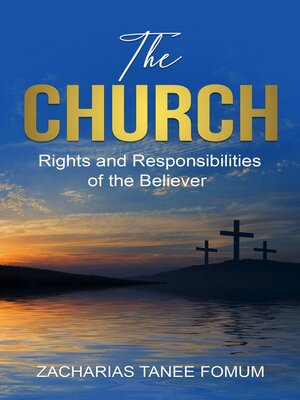The Church
ebook ∣ Rights and Responsibilities of the Believer · Off-Series
By Zacharias Tanee Fomum

Sign up to save your library
With an OverDrive account, you can save your favorite libraries for at-a-glance information about availability. Find out more about OverDrive accounts.
Find this title in Libby, the library reading app by OverDrive.



Search for a digital library with this title
Title found at these libraries:
| Library Name | Distance |
|---|---|
| Loading... |
The book of Ephesians, on which this study is based, was not written to independent individuals. It was written to the church. All of God's power is available to us in the context of the church.
Total power was manifested in Christ, the Head of the church. After that, God has purposed that His total power would be manifested not in the arm, foot or eye, but in the whole body; the body of Christ, which is the church.
The church is not a human creation. The church is not a creation of the apostles. The church is the creation of the Triune God. The church was in the mind of the Triune God-Father, Son and Holy Spirit – from the very beginning.
The purposes of God are tied to the church. The exaltation of Christ has the church in view. It has nothing else in view. In a sense, He has only the church in mind. He does not have individual believers in mind, even if they are very consecrated and holy.
Unless I find my place in the church, in the local context, I have missed it all; I am out of His purpose. Unless I see myself, my character, and my work, in the context of that which God has set Christ as head, I have missed it. It is from this perspective that the Lord Jesus could say, ...I will build my church, and the powers of death shall not prevail against it (Matthew 16:16).







